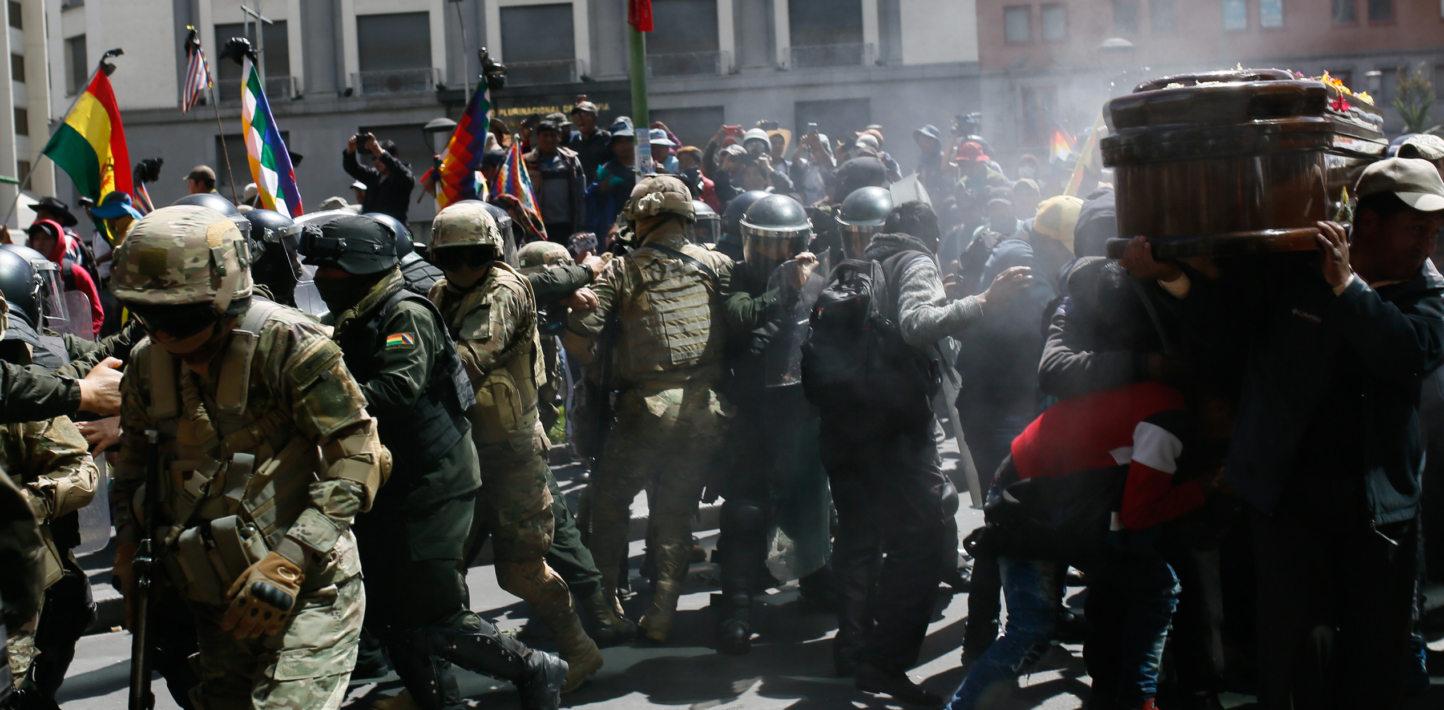The pandemic of impunity for human rights violations in Bolivia, which Amnesty International has highlighted for decades, is directly related to concerns about the Bolivian justice system’s lack of independence, which have resurfaced in recent weeks.
“Unfortunately, the arrests of Jeanine Áñez and other former officials of the interim government, together with Supreme Decree 4461 which grants pardons or amnesties to Movement for Socialism (MAS) supporters, seem a continuation of the pattern of bias in the system of justice that helps perpetuate impunity for human rights violations. Amnesty International has for decades been reporting on this crisis of impunity in Bolivia, which can only be reversed by genuinely independent and impartial justice,” said Erika Guevara-Rosas, Americas director at Amnesty International.
The order issued on 14 March for the preventive detention of Jeanine Añez and several former officials of her government, occurred within the framework of the case called “Coup d’état”, initiated for their alleged criminal responsibility for the offences of sedition, conspiracy and terrorism, not for their responsibility for the human rights violations that occurred while they were in government and that must be investigated independently, impartially and with respect for due process guarantees.
Amnesty International has for decades been reporting on this crisis of impunity in Bolivia, which can only be reversed by genuinely independent and impartial justice
Erika Guevara-Rosas, Americas director at Amnesty International
Amnesty International has repeatedly highlighted the human rights violations that occurred after the elections of 20 October 2019 in Bolivia, including the repression of demonstrations, with the use of excessive and unnecessary force, by the National Police and the Armed Forces. According to information gathered by Amnesty International, at least 35 people died and 833 were injured in the context of the protests that began in October 2019 and many others were detained in breach of the rules of due process. These human rights violations have not been adequately investigated, prosecuted or punished, allowing impunity for them to persist.
Of special concern is the impunity and lack of clarification regarding the events that occurred during the protests in Sacaba and Senkata in which at least 18 people died and many others were injured. Such is the level of distrust among victims’ relatives in Bolivian justice, that they have asked that an Interdisciplinary Group of Independent Experts (GIEI) be the body that investigates these events.
With the support of the international community, and under the auspices of the Inter-American Commission on Human Rights, the GIEI began its investigations in Bolivia at the end of November 2020, rekindling the hope of justice, truth and reparation for the victims of human rights violations.
The 2019 post-election crisis was also characterized by harassment and threats targeting political opponents, and people perceived as such, by the then interim government of Jeanine Añez, as well as public threats against political leaders accused of disseminating “misinformation” and journalists accused of “sedition”, with people being accused of participating in “movements of destabilization and disinformation” and of waging a “virtual war” against the government.
While this harassment is a breach of human rights, there have also been credible reports of possible crimes and use of force by supporters of the MAS political party during the protests; these must be impartially, promptly and independently investigated.
Contrary to its commitment to guarantee justice, the government of President Luis Alberto Arce has tried to justify the alleged crimes committed by MAS supporters during the political crisis at the end of 2019, stating that, although “formally they can be interpreted as crimes set out in the Criminal Code… they do not suggest an intention to commit an offence”. The government therefore proposes to leave such criminal actions unpunished solely on the grounds that they were committed by its supporters.
President Luis Alberto Arce’s message must be robust and unequivocal: if his government is going to commit itself to truth and justice for human rights violations in Bolivia, it must be unwavering in its commitment to due process and the independence and impartiality of the justice system
Erika Guevara-Rosas, Americas director at Amnesty International
It was in this context that, on 18 February, Supreme Decree 4461 was approved granting an amnesty or pardon to supporters of the government of President Luis Alberto Arce who were detained for alleged crimes committed during the political crisis that started in October 2019.
“Supreme Decree 4461 is a flagrant and multiple violation of the state’s international human rights obligations because of its clear ideological bias, granting an amnesty that benefits only people who support the government,” said Erika Guevara-Rosas.
Amnesty International calls on the Bolivian authorities to respect due process, including ensuring the access of detained former officials to an adequate defence and – if applicable – to a fair, independent and impartial trial that does not involve ambiguous criminal offences. Moreover, Amnesty International calls for the immediate repeal of Supreme Decree 4461, so as to guarantee that those responsible for crimes in the context of the 2019 crisis, whether or not they are MAS supporters, face justice and ensure that the victims of arbitrary detention and other human rights violations can access justice, fully guaranteeing their civil and political rights.
“President Luis Alberto Arce’s message must be robust and unequivocal: if his government is going to commit itself to truth and justice for human rights violations in Bolivia, it must be unwavering in its commitment to due process and the independence and impartiality of the justice system,” said Erika Guevara-Rosas.
For more information or to arrange an interview, please contact Amnesty International press office: [email protected]


